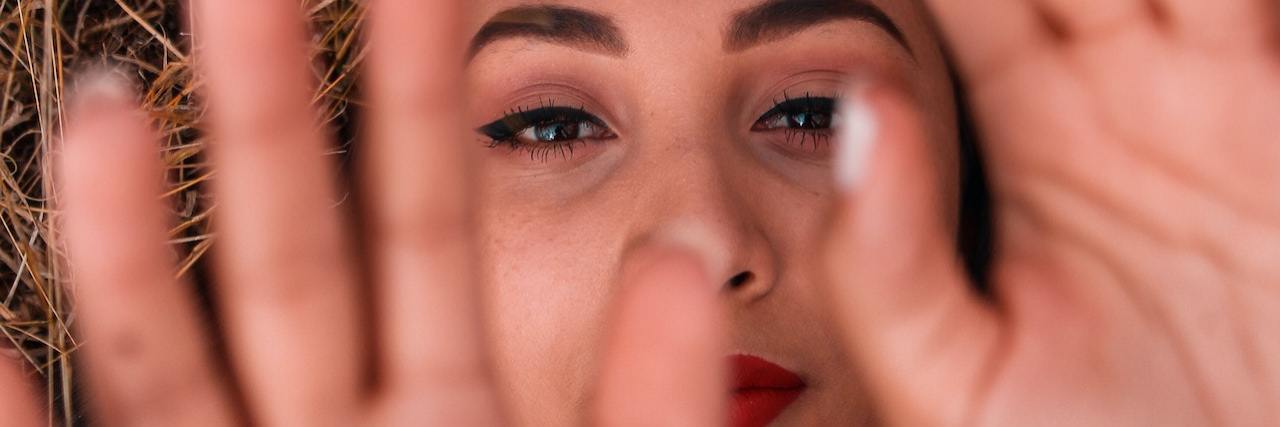How Do You 'Get Better' in a Psychiatric Hospital Where No One Understands You?
Dior Vargas is a Latina feminist mental health activist. She is also an ally to the #BuildABlackVision campaign. Vargas founded the People of Color and Mental Illness Photo Project to fill the void of BIPOC representation in mental health images. This project turned into “The Color of My Mind,” a photo essay book published in 2018. Before her mental health activism, Vargas was once a patient at a mental hospital in an upper-class Manhattan neighborhood in 2006. She chronicles her experience and her demand for dignity.
TW: mention of suicidal ideation and suicide attempt
I started college in 2005. And it was the first time I was away from my family. I went to Northampton which is a really tiny ass white town. So it was a culture change for me. Going to a predominantly white college meant being around all of these really privileged, ignorant white girls. And my estranged father found out he had colon cancer or some kind of cancer. I also had problems with my roommate. On Facebook her friend posted: oh you should make your roommate want to kill herself. So that was a hot mess. I ended up getting a single room. I wasn’t doing well in school. I was depressed, sleeping all the time.
I came home [for the summer in 2006]. I had been miserable for years but particularly that year. I felt when I came home I would be in a better place and be back to normal. But I got in a fight with my mom and my sister and was like “I’m miserable everywhere.” I was suicidal since I was 8 years old but didn’t attempt until I was 11. I decided I was gonna end my life because I was like, “OK, there is no place I can go where I feel happy so I’m done with this.”
They took me to the hospital. I had to drink charcoal to take the toxins out. That was scary. I was in the main hospital for three days or so. There was a nurse sitting by my bed 24/7 and there were no locks on the bathroom doors. I felt I was being punished and I couldn’t be trusted. I felt horrible.
Then they moved me to the psychiatric ward. I was there for a week, maybe more. I was really, really scared. There were a lot of white people there. There weren’t a lot of people of color. I felt different, like no one could understand me. I was really pissed because I didn’t want to be there. They had a lock on the door and a buzzer. They wanted me to be cooperative and I didn’t want to be cooperative. I just wanted to go into my room and stay there by myself. So for a few days, I just stayed in my room.
After a while, I felt like if I didn’t play their game then I wasn’t going to be able to get out. So I just decided I was going to act like I was getting better. Another thing that really bothered me is that they took all my stuff. I felt I was again being punished. Like robbed of my freedom. That was very overwhelming and I wanted to get out. My mom tried to get me out but they were like, “no, your daughter is just manipulating you,” stuff like that.
After a while, I started going to the main room and the group sessions like OK, I’m just going to fake whatever I need to do. I noticed people were wearing their regular clothes instead of their hospital gowns. I was like wait if they’re cooperating they get to wear clothes which probably means they’ll leave soon. OK, let’s do this. So then I was eventually able to leave. I don’t remember them following up with a therapist.
[Being at a mental hospital] should be a more humane experience. You shouldn’t be in something that feels like jail. What if you’re someone who doesn’t speak English? Do you have people there who are able to speak your language? And even for someone who does speak English, do they understand where you’re coming from? I would have loved to look back on my mental hospital experience thinking that I felt loved, affirmed and heard. And that I truly got better and felt better about myself. Instead, my main thought was I gotta do whatever I can to get the hell out of here. I feel like that contributes to people not wanting to get involved in the mental health system because of experiences like that. And I was very lucky with my experience. Other people have gone through worse, so imagine that part.
When you are a [mental hospital patient] in the community and place where you grew up and feel safe and understood, that makes a difference. I feel that representation is something that impacts people’s experiences.
Want to #BuildABlackVision? Go to beam.community/blackvision to learn more and to support Depressed While Black’s Mental Hospital Wish List program that provides Black-affirming personal care items to patients.

